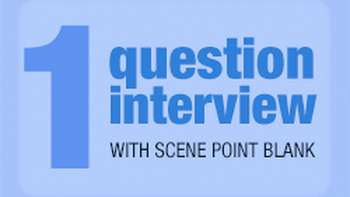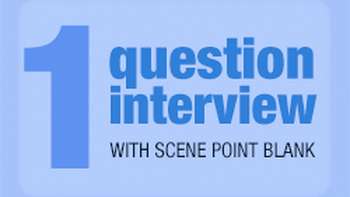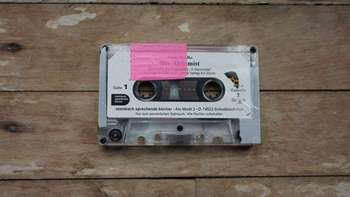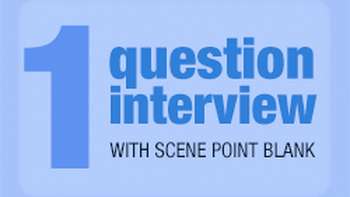The scene is very important in fleshing out Budd's character, but when people see a former assassin walk into a titty bar, they naturally expect comedy (in fact, there's no way to describe this situation without sounding like you're setting up a joke). This is one of the few scenes that is hampered by the split because the anxious audience's expectations were warped by waiting six months for this. If they had waited 10 minutes to see the scene after volume 1's conclusion, they probably would have received it differently. The point of the scene that is lost on some is that it shows how Budd chooses to live after abandoning the lifestyle of an assassin, a recurring theme where references to it can be found in volume 1 (Vernita: 'All I can tell you is I'm a different person now,' and O-Ren's becoming 'the boss of all bosses in Tokyo, Japan'), and in the remainder of volume 2.
The second most disputed scene is in the final chapter, when the bride (not the bride anymore at this point, but spoilers will be avoided) consults a Mexican pimp who raised Bill. Many think that it should just begin with the bride driving to Bill's house, but there are a lot of scenes in Kill Bill that one can argue don't need to be there. They're there for sentimental and aesthetic value, just like Hattori Hanzo and his swords. The fantastic dialogue and a knockout scene by Michael Parks make this scene a joy.
I think the main problem audiences have with the scene is Esteban Vihaio, as Parks's character is called, is very hard to understand. I can't think of any other reasons for the audience to ignore such gems as 'Bill shoot you in the head, no? I would have been much nicer, I would just cut your face a bit.' The dialogue is just as wonderful as in the opening scene of the 'Blood-Splattered Bride' chapter from volume 1 where Michael Parks also shines, this time as Sherriff Earl McGraw. After watching his scene in volume 2, I realized that both of these scenes have some of the finest dialogue Tarantino has ever written. That is, until I saw the scene that followed it.
Tarantino seems the most comfortable crafting dialogue for characters which he creates with certain actors in mind, and it is evident as ever through Bill's dialogue. Despite having Warren Beatty originally cast for the role of Bill, Tarantino created the titular character with 'Caine from Kung Fu' in mind. Bill is just a frightening figurehead in volume 1, just as intended, but in the knockout final chapter of volume 2, Bill is given plenty of life and shape. The astute viewer might be able to see through the character and conclude that Tarantino is speaking directly to the audience through his character. After seeing this scene four times now, I have to disagree.
The division between the two characters is thickly drawn. Bill realizes that his life will end soon, and being such a legend had to have affected his ego at least a little bit. As a result, he indulges in several 'Tarantinoesque' monologues that turn off some viewers as being too obviously self-aware, clumsily written, and overindulgent. Even though Bill gathers father figures, travels the world, and indulges in Eastern philosophy (probably), he resorts to some of the most trivial examples imaginable to illustrate his point, such as goldfish or comic books; Bill himself said that Superman isn't a great comic, and not particularly well-drawn. What we get is a deluded man at the end of his rope, drunk, probably high (alluded to in the previous chapter), and 'all about old-school' indulging in self-important capsules of pop culture and pseudo-poetry to exaggerate his wisdom in his final hours and go out with a bang.
The bride, on the other hand, appears to be speaking entirely for the audience. Tarantino LOVES to fuck with his audience, and it is never more apparent in the surprisingly laid-back conclusion to a four-hour grindhouse flick. Instead of an over-the-top duel, we get a delightfully twisted depiction of a dysfunctional family of the worst kind. Bill shoots the bride with a dart full of truth serum, a double reference (a Tarantino trademark) to films that exploit plot devices like a truth serum, and the films and TV shows that parody these films (Mr. Blonde's infamous 'ear scene' in Reservoir Dogs is both a reference to Gene Kelly in Singin' in the Rain and a reference to Malcolm MacDowell referencing Gene Kelly in A Clockwork Orange).
As Bill is indulging in his self-important monologues, the bride interrupts with questions such as 'how long does this shit take to go into effect?' delivered in the same way as an audience member would ask 'how much longer are they going to talk before she kills Bill?' and Tarantino is fully aware of how the audience will respond to this scene. In this scene, Bill is in fact, interrogating the audience. He asks the bride if she enjoyed killing all the people she killed, but what he's asking the audience is 'you enjoyed watching her kill those people, didn't you?'
Tarantino isn't questioning his character's morals (which are obviously skewed and repugnant), but what we accept in violence in films. This gives Bill and the audience common ground. Bill called us out on our bloodlust, and he caused us to rethink this bloody tale of revenge and its moral implications. This common ground gives Bill's character a sympathetic edge and gives his death a lot more emotional impact.
Also great about the final chapter is how it is the direct inverse of the 'Massacre at Two Pines' chapter (another scene that has come under harsh scrutiny by volume 1 fans) with which volume 2 opened. The first chapter is Bill's first confrontation with the bride after several months of thinking she died while on an assignment. It is an extremely uneasy and uncomfortable confrontation; the exact opposite of the 'we may be killers, but make yourself at home' atmosphere of the final chapter. Yes, there is the difference that in the first chapter, Bill 'kills' the bride, and in the final chapter, the bride kills Bill, but the differences are deeper than that.
The bride surprised Bill by revealing that she abandoned him to start a new life, and Bill surprises the bride by revealing that her daughter is apparently 'impervious to bullets.' There are even simple quirks in the dialogue in both chapters that mirror each other, in 'Massacre,' Bill says 'ah, so, it all suddenly seems so clear,' and in 'Face to Face,' the bride says 'ah, so, the point emerges.' When her fiancé approaches the bride and Bill having a rather uncomfortable reunion, the bride tells Bill to call her 'Arlene,' which is the first instance of the bride's new life invading her old life. When the bride's daughter shoots her mom with a toy gun, Bill says 'call her BB' in order for the bride to accurately reenact a death scene (which I think, ironically enough, is the most showdown-from-a-spaghetti-western moment in the entire film), another moment in which the bride's past and future invades her present.
While on the surface this is a delicately-crafted action film featuring a roller-coaster of emotions, it is replete with hints at themes and morals that run much deeper. I believe that Tarantino is making a profound statement about how we perceive violence while at the same time presenting a delightful exploration of what makes movie killers tick, and that this analysis is barely scratching the surface.
-Jeff




